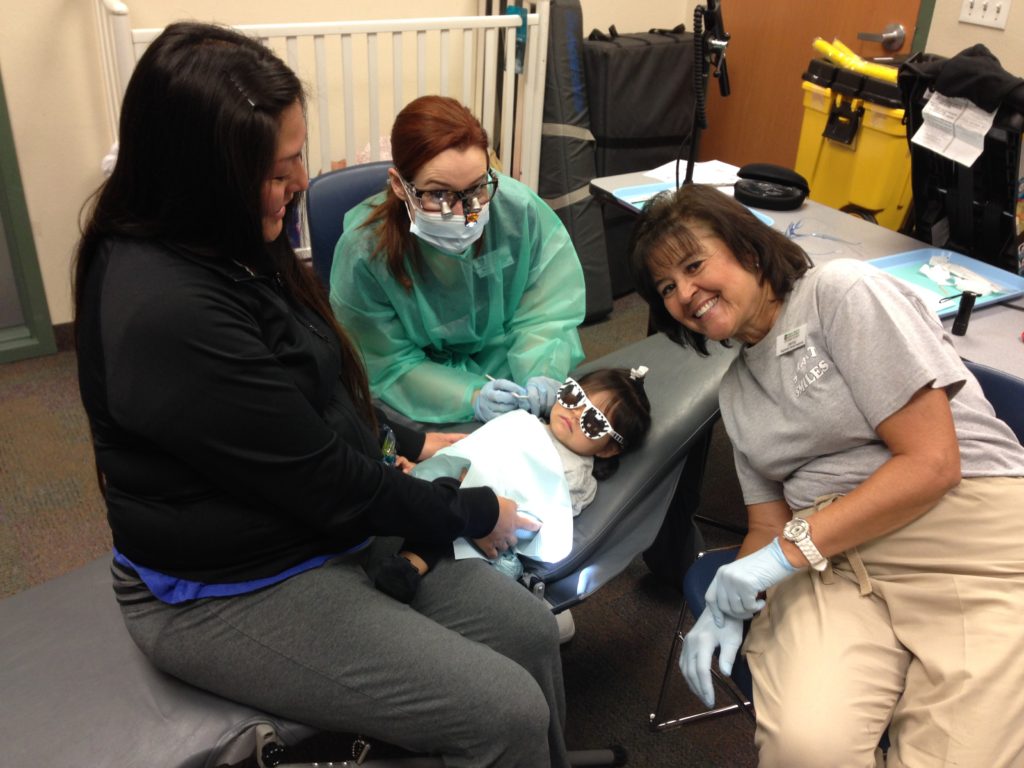A Northern Arizona University dental hygiene outreach program is credited with helping reduce tooth decay among area children.
Several times each year, NAU dental hygiene students visit child care centers to provide oral health screenings, education and fluoride varnishes. The outreach is part of the Coconino County Smart Smiles Program.
A new report showed Arizona reduced the percentage of kindergarteners with untreated decay by eight percent compared with findings in a 2003 report.
The study, “Taking a Bite Out of School Absences: Children’s Oral Health Report 2016,” was conducted by the Arizona Department of Health Services and First Things First, a statewide group promoting early childhood health and education.
First Things First invested more than $23 million in its oral health strategy, which includes numerous services for Arizona children. Tooth decay in young children can lead to future oral health problems and damaged permanent teeth.
NAU students participated in the dental health screenings and educated children and their caregivers about good oral health practices.
“We are seeing kids as young as two and three years old with decay on every tooth and into the nerves,” said Ivan Pacheo, dental hygiene faculty member. “It is essential that young children develop good oral health habits to prevent potential painful cavities and costly care.”
“Many prevention efforts focus on children once they are in school,” said First Things First CEO Sam Leyvas. “We have taken a leadership role in providing preventive and community–based oral health support focused solely on children birth to five.”
Estimates from the state health department show nearly one-third of kindergarteners in Coconino County have untreated decay and are in need of dental care. However, more children in the region participate in annual dental visits compared to the state’s overall population.
The Smart Smiles program visits child care centers and events countywide, including the Havasupai, Kaibab Band of Paiute Indians and the Hopi Reservations.



